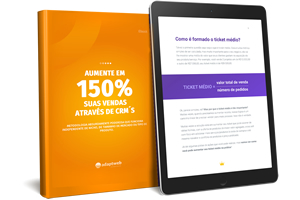Data on Americans’ drinking habits comes from the National Institute on Alcoholism and Alcohol Abuse (NIAAA), and alcohol sales data is from the U.S. Stopping is impossible at this point without professional building alcohol tolerance help because of the severe and potentially life-threatening withdrawal symptoms that would occur if they quit cold turkey. By this stage, their drinking is taking an obvious physical toll as well.
Eventually, however, you wind up at a party or happy hour that gets out of hand and end up drinking heavily again. You may not be physically reliant on alcohol, but you will notice a psychological dependence forming. alcohol poisoning Eventually, you experience increased depression, anxiety, and sleep problems. Your brain becomes accustomed to using alcohol to boost dopamine and deal with stress, boredom, and other unpleasant feelings.
Eventually, their tissue cells may become dependent on alcohol to function normally. A person with early-stage alcoholism may also exhibit a high tolerance to alcohol. Their tolerance may go unnoticed by everyone except the people they spend the most time with. If you don’t drink alcohol, don’t start because of potential health benefits. However, if you drink a light to moderate amount and you’re healthy, you can probably continue as long as you drink responsibly.
- If two or three of these statements apply to you, you are likely to have a mild type of alcohol addiction or AUD.
- Reducing your daily alcohol consumption can improve your health, according to WHO.
- The alcohol can be passed to your infant, so it’s best to avoid alcohol altogether.
- However, severe alcohol use disorders can be problematic for your whole life.
- When you drink too much, your liver has a harder time filtering the alcohol and other toxins from your bloodstream.
- That definition is broad enough to include all alcoholics, people who suffer from alcoholism.
While there wasn’t much of a difference in risk between younger and older groups who drank moderately, younger people in the study had greater mortality risks than the older ones at high consumption levels. Reducing your daily alcohol consumption can improve your health, according to WHO. Alcohol use disorder has been identified as something that happens when a person drinks so much or so often that it changes the chemical makeup of their brain. Symptoms of alcoholism and alcohol withdrawal may take a few hours or days to show and get worse over time. “Drinking in excess also affects a person’s behaviour, emotions and judgement which can be harmful in different ways,” says Dr Alazawi. “Some people can become depressed if they drink and more so if they drink alone. We need to be aware of our own mood and mental health as well as that of those around us,” he advises.
Is drinking at home worse for you than drinking when you’re out?
Underage drinking among U.S. teens has declined over the last 20 years, according to the University of Michigan’s Monitoring the Future survey. In 2023, 46% of 12th graders said they had consumed alcohol in the 12 months prior to the survey, as did 31% of 10th graders and 15% of eighth graders. These shares are down from 2001, when 73% of 12th graders, 64% of 10th graders and 42% of eighth graders said they had drunk alcohol in the previous year. Alcohol is a diuretic, which means it moves water and salt out of the body and can cause dehydration. That feeling of desperately needing water to help with a dry mouth after waking up from a night of drinking is due to dehydration.
When alcohol enters the bloodstream, one of the central impacts is slowing the rate of communication between nerve cells. The rate of communication returns to its typical levels once alcohol leaves the body. If a person drinks frequently or more heavily, the nerve cells in the brain adapt by reducing the number of places they can receive these messages. The nuances of treatment evolve, and any program should be catered to an individual’s unique needs.
Pros and cons of moderate alcohol use
In addition to being uncomfortable, dry mouth can lead to inflammation of the mouth and reduced salivary flow, which contributes to tooth decay. So whether you raise a glass to Schaffner’s takeaway from the review paper (“don’t drink too much”) or lower it in response to Rahman’s (“don’t drink”), it’s best to imbibe responsibly, if at all. Jan. 17, 2024 – When it comes to alcohol consumption, moderation is everything. If you have a pattern of suddenly feeling very sick after consuming alcohol, you may have developed sudden onset alcohol intolerance.
Your gut health can be negatively affected
Moderate drinking is defined by the Dietary Guidelines for Americans as no more than two drinks a day for men and no more than one drink a day for women. A drink consists of 14 grams of pure alcohol, which is found in 12 ounces of regular beer, 5 ounces of wine or 1.5 ounces of distilled spirits. Whether you’re the loved one of someone struggling with alcohol addiction, or you yourself are struggling, it’s important to be aware of these signs and to know that you’re not alone. Thousands of people from all walks of life battle alcoholism every day, and thousands make the decision to seek help. People who consume alcohol excessively can qualify as alcoholics with alcohol use disorder.
Stages of Alcoholism: Early, Middle, & End-Stage Alcoholism
The first stage of alcoholism is a general experimentation with the substance. Individuals in this stage may not be familiar with different types of alcohol, so they are more likely to test their limits. This stage of alcoholism is often defined by the goal of “drinking to get drunk.” People who use alcohol often use it to self-medicate and escape negative thoughts and feelings. Usually, people in the first stage of alcoholism are not drinking every day, and they are still able to perform daily activities. Although drinking may not consume their thoughts, they may need to drink more to reach the desired level of intoxication. During this stage, someone may believe they are still functioning because they have a job and they are successfully maintaining relationships.
What Happens to Your Body When You Drink?
For more information on the stages of alcoholism for functioning alcoholics, contact us today. If you are only drinking one 5-ounce glass of wine with dinner, and not drinking more before or after the meal, this is well within the guidelines of moderate drinking. For women, drinking one glass of wine per night, less than seven days per week, is moderate drinking. While you may still experience some side effects from drinking this frequently, it is not considered AUD or addiction.
The mental and physical health of alcoholics are rapidly deteriorating at this stage, and unless they seek alcohol rehab, they may drink themselves to death. A robust immune system is essential for fighting off illness and immunity is negatively affected by chronic alcohol consumption. A large portion of the immune system is housed in the gastrointestinal tract and the GI tract is alcohol’s first point of contact after consumption.
Some chronic alcoholics develop a condition called Wernicke-Korsakoff syndrome, which results from a thiamine (vitamin B-1) deficiency. The condition, which is sometimes called wet brain, is characterized by eye movement disorders, loss of muscle coordination, confusion and memory issues. It affects more men than women and alcohol shakes: symptoms, causes, treatments, and remedies is fatal 10 to 20 percent of the time. Many reach for a cocktail or glass of wine to cope with a bad mood but it turns out that alcohol may be contributing to a vicious cycle of moodiness. Alcohol is a depressant and it has a direct effect on the balance of neurotransmitters (serotonin, GABA, dopamine) in the brain.
Functional Subtype
Take the first step toward addiction treatment by contacting us today. Seek out a physician, therapist, and addiction specialist so you can get the treatment you need for the level of AUD you experience. If calling yourself an alcoholic is the final step that brings you to sobriety, counseling, and healing (as it has for thousands of people), then that’s what you should do. Despite destroying relationships, burning professional bridges, and creating drama in my own family and marriage, I refused to entertain the idea that I, too, was an alcoholic.
This first stage of alcoholism is best defined as occasional alcohol abuse, binge drinking, or the act of drinking to become intentionally drunk. Many people use the terms “alcohol abuse” and “alcoholism” interchangeably. However, alcoholism refers to alcohol addiction or dependence, where the individual has a physical or psychological compulsion to drink alcohol. Alcohol abuse refers to a pattern of behavior where a person drinks excessively in spite of the negative consequences.









